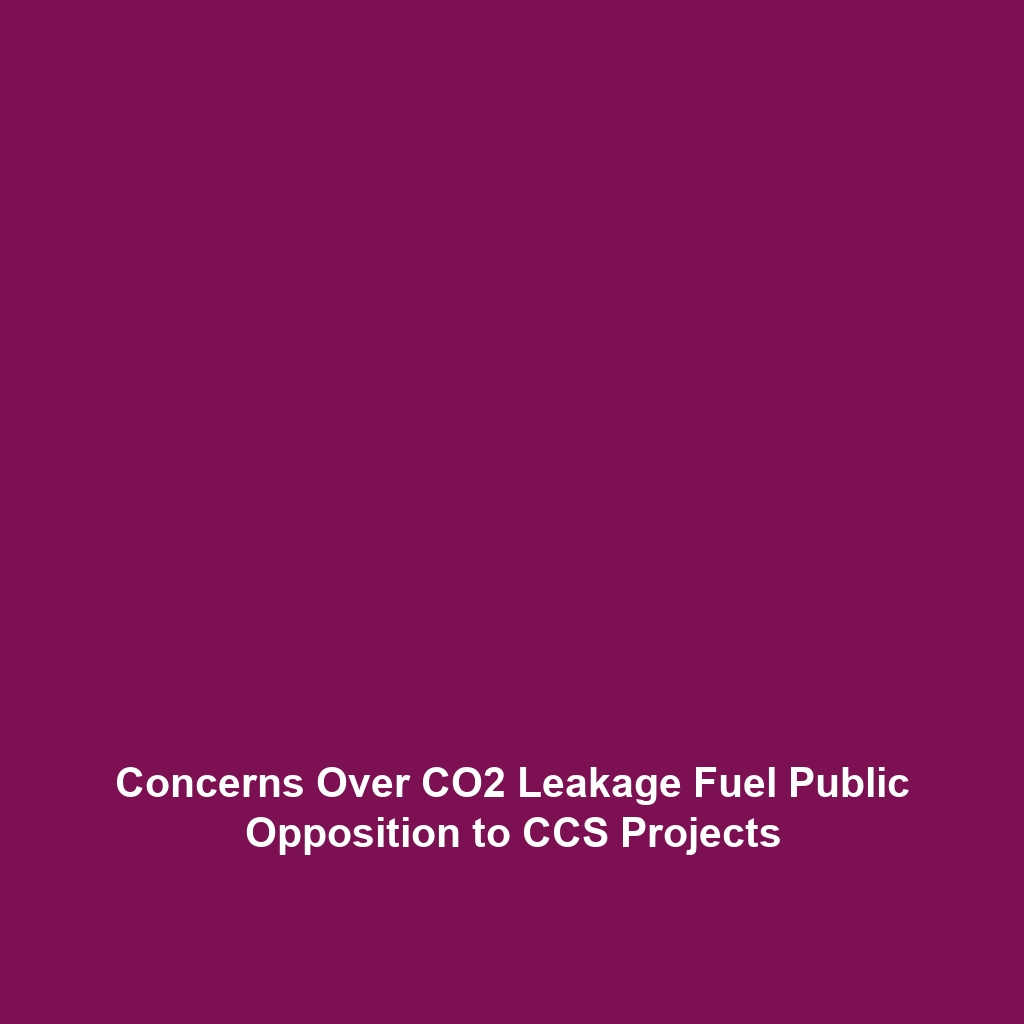Public Opposition to CCS Projects: Concerns of CO2 Leakage and Environmental Impact
Introduction
Public opposition to Carbon Capture & Storage (CCS) projects often stems from fears regarding potential CO2 leakage and environmental impacts. As the world seeks sustainable solutions to mitigate climate change, understanding these public concerns is critical. Mitigating greenhouse gas emissions through CCS technologies is essential for achieving global climate targets, yet opposition can hinder the implementation of these vital projects. This article delves into the significance of public apprehensions related to CCS and how they impact broader environmental goals.
Key Concepts
Understanding public opposition to CCS necessitates a grasp of various concepts surrounding it. Key principles include:
- Carbon Capture Technology: This involves capturing CO2 emissions produced from industrial processes and storing them to prevent their release into the atmosphere.
- Environmental Impact Assessment: Public fears often arise from incomplete or poorly communicated assessments regarding the environmental risks associated with CCS projects.
- Risk Perception: Factors influencing public perception include trust in regulatory agencies, prior experiences with environmental issues, and communication transparency.
Applications and Real-World Uses
Understanding how public opposition affects Carbon Capture & Storage initiatives is crucial. Key applications include:
- Energy Production: CCS is applied in coal and natural gas power plants to reduce their CO2 emissions significantly.
- Industrial Processes: CCS is used in cement, steel, and chemical manufacturing to capture emissions at the source.
- Research Projects: Ongoing research examines community engagement strategies to address fears of CO2 leakage.
Current Challenges
Public opposition can present significant challenges and limitations in CCS implementation:
- Trust Issues: Lack of trust in government and industry can lead to widespread skepticism about CCS technologies.
- Information Gaps: Insufficient public knowledge about the safety and effectiveness of CCS can exacerbate fears.
- Political Resistance: Local and national regulations may hinder project development due to public opposition.
Future Research and Innovations
New research and innovations are essential to alleviate public fears and enhance CCS projects:
- Next-Generation Technologies: Innovations such as direct air capture and enhanced subsurface monitoring are being explored to minimize risks associated with CO2 leakage.
- Community Engagement Models: Research focusing on effective communication strategies is crucial to fostering trust between stakeholders and the public.
- Enhanced Safety Protocols: Developing stringent safety measures can reassure the public about CCS’s reliability and environmental safeguards.
Conclusion
Addressing public opposition to Carbon Capture & Storage projects due to fears of CO2 leakage and environmental impacts is essential for the success of these initiatives. As the urgency of climate change necessitates robust solutions, understanding and resolving these concerns will pave the way for effective CCS implementation. Further research should prioritize transparency and community engagement to foster public trust. For more insights on CCS and its environmental implications, visit our related articles section.

Leave a Reply